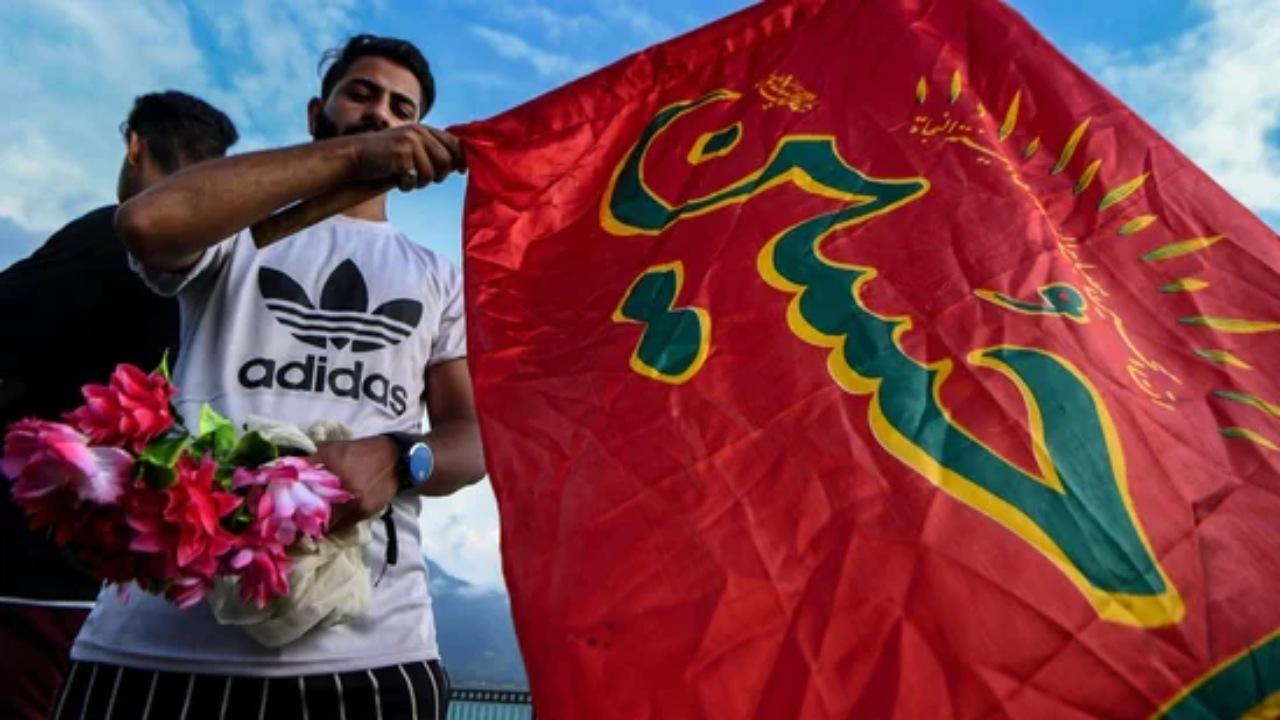Muharram is the first month of the Islamic lunar calendar and holds significant religious and historical importance for Muslims. It is considered one of the sacred months in Islam and is observed with various religious and commemorative practices.

A Kashmiri Shiite Muslim holds a religious flag during preparations ahead of the start of Muharram to commemorate the religious mourning period of Ashura, in Srinagar. File Photo / TAUSEEF MUSTAFA / AFP
Muharram is the first month of the Islamic lunar calendar and holds significant religious and historical importance for Muslims. It is considered one of the sacred months in Islam and is observed with various religious and commemorative practices.
The 10th day of Muharram, known as Ashura, is particularly significant and is observed with deep reverence by both Sunni and Shia Muslims, albeit with different interpretations and practices.
For Sunni Muslims:
Ashura is a day of fasting, following the tradition of the Prophet Muhammad (peace be upon him) who fasted on this day as gratitude to Allah for saving Prophet Musa (Moses). The fast is not obligatory but is highly recommended.
For Shia Muslims:
Ashura is a day of mourning and remembrance. It commemorates the martyrdom of Imam Hussain, the grandson of Prophet Muhammad (peace be upon him), at the Battle of Karbala in 680 AD. This battle was a pivotal event in Islamic history, and it symbolizes the struggle against oppression and injustice. Shia Muslims gather in mosques and processions, recite elegies and participate in acts of charity and self-flagellation as expressions of grief and solidarity with the suffering of Imam Hussain and his companions.
The Battle of Karbala took place on the 10th day of Muharram (Ashura) in the year 680 CE (61 AH) in the desert plains of Karbala, located in present-day Iraq. It is one of the most significant and tragic events in Islamic history and holds immense importance for the Muslims.
The battle was fought between the forces of Yazid I, the Umayyad caliph, and a small group of followers led by Imam Hussain ibn Ali, the grandson of Prophet Muhammad (peace be upon him). The events leading up to the Battle of Karbala can be traced back to the political and religious tensions within the Muslim community at that time.
After the death of Yazid's father, Muawiyah I, he ascended to the caliphate and demanded allegiance from Imam Hussain. However, Imam Hussain refused to pledge allegiance to Yazid.
Also read: Gyanvapi mosque management moves Allahabad HC over ASI survey, hearing begins
Imam Hussain, along with his family members and a small group of supporters, embarked on a journey from Mecca towards Kufa in Iraq, where some people had expressed their desire to support him against the rule of Yazid. However, as they approached Kufa, they were met with resistance, and Yazid's forces prevented them from reaching their destination.
The situation culminated in the Battle of Karbala, where Imam Hussain and his followers, numbering around 72 individuals, faced a much larger Umayyad army. Despite being vastly outnumbered, Imam Hussain and his companions refused to back down and stood their ground, upholding their principles of justice and truth.
On the fateful day of Ashura, after a day of intense fighting and deprivation, Imam Hussain and his companions were martyred one by one, including his half-brother Abbas, his son Ali Akbar, and his infant son Ali Asghar.
Imam Hussain's sacrifice at Karbala is considered a symbol of resistance against oppression and a stand for justice and truth. His unwavering stance against tyranny has inspired generations of Muslims to uphold the values of righteousness and to resist injustice.
The month of Muharram also serves as a time for reflection, repentance and renewal of faith for Muslims. It is an occasion to remember and contemplate the lessons from historical events and to seek spiritual growth and closeness to Allah.
Both Sunni and Shia Muslims use the occasion of Ashura for self-reflection, seeking forgiveness, and repentance. It is a time to contemplate on one's actions, strive for self-improvement, and draw closer to Allah.
Ashura is also a day of increased acts of charity and kindness. Muslims are encouraged to help the less fortunate, donate to charitable causes, and perform good deeds as a way of showing compassion and solidarity with those in need.
 Subscribe today by clicking the link and stay updated with the latest news!" Click here!
Subscribe today by clicking the link and stay updated with the latest news!" Click here!










